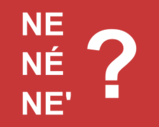Concetti Chiave
- Will is used for predictions, offers, promises, threats, and on-the-spot decisions, showing its versatility in English sentence structures.
- To form sentences with "will," use "subject + will + base form of the verb," with variations for questions and negatives.
- "To be going to" is primarily used for future intentions and predictions based on certain evidence, with a clear sentence structure involving "subject + be + going to."
- The first conditional involves a hypothetical present simple clause followed by a future clause, maintaining a rule against using two future tenses in one sentence.
- The present continuous is used for planned actions, reflecting organized future activities unlike spontaneous decisions made with "will."
Indice
Struttura delle frasi con 'will'
Soggetto+will+forma base verbo utilizzato.
Interrogativa:
Will+soggetto+forma base verbo utilizzato.
Nella frase negativa will diventa won't poi ha la stessa struttura della frase affermativa.
Will è usato per:
1)Predictions(predizioni):
Es:
-You will have a children;
-It will rain tomorrow;
Offerte e promesse con 'will'
2)Offers(offerte):
-i will carry your suitcase; Traduzione: Ti porto io la valigia.(prestarsi).
-I will help you. Traduzione: Ti porterò io.
3)Promises(promesse):
-I will study more. Traduzione: Studierò di più.
-i will eat fewer candies. Traduzione: Mangierò meno caramelle.
Minacce e decisioni immediate
4)Threats(minacce):
-If you don't shut up i will give lets of homework. Traduzione: Se non starai zitto ti darò i compiti.
5)On-the-spot decisions(decisioni prese al momento):
-I'll get it! Traduzione: Lo prenderò io.
-hope(per esempio,I hope that he will come to the party);
-thinks;
-maybe and perhaps(non sono verbi ma vogliono dire forse).
Struttura delle frasi con 'going to'
Affermative:
Soggetto+be(coniugato alla persona di riferimento, poi vedremo un esempio)+going to.
Esempio:
I am going to change my car soon. Traduzione: Ho intenzione di cambiare la mia macchina presto.
Interrogativa:
Be(coniugato)+soggetto+going to...
Esempio:
Are(coniugato alla seconda persona singolare/plurale in questo caso) you going to married? Traduzione: Hai intenzione di sposarti?
Nelle frasi negative basta solo aggiungere il not dopo la coniugazione del verbo essere.
Previsioni e azioni programmate
Viene utilizzato per:
1)Fare previsioni su indizi certi:
-It's going to rain. Traduzione: Sta per piovere.
P.S.: Il present continuos si usa per azioni programmate per esmpio:
-I am leaving to London tomorrow. Traduzione: Partirò per Londra domani. (vuol dire che ha già acquistato il biglietto e che ha già organizzato tutto per questo è un' azione programmata.
-He is playing tennis on Thursday night. Traduzione: Lui giocherà a tennis Martedì notte.(azione programmata quindi vuol dire che lui sa già l'orario ed è già organizzato per anar a giocare a tennis).
Uso del first conditional
Il first conditional si forma con due frasi, una ipotetica nella quale solitamente ci fa il present simple e l'altra futura. (Questo è un suggerimento).
Esempio:
-Se pioverà, rimarrò a casa.
Future->simple present
If it rains, i will stay at home.
-Se noi studieremo, passeremo l'esame.
If we study, we will pass the exame.
Domande da interrogazione
- Qual è la struttura di una frase affermativa con "will"?
- Quando si utilizza "to be going to"?
- Come si forma il primo condizionale in inglese?
- Quali sono alcuni usi di "will" nelle frasi?
La struttura di una frase affermativa con "will" è: Soggetto + will + forma base del verbo.
"To be going to" si utilizza soprattutto per esprimere intenzioni future e previsioni basate su indizi certi.
Il primo condizionale si forma con una frase ipotetica al present simple e una frase futura, ad esempio: "If it rains, I will stay at home."
"Will" si usa per predizioni, offerte, promesse, minacce e decisioni prese al momento.









 Accedi a tutti gli appunti
Accedi a tutti gli appunti
 Tutor AI: studia meglio e in meno tempo
Tutor AI: studia meglio e in meno tempo